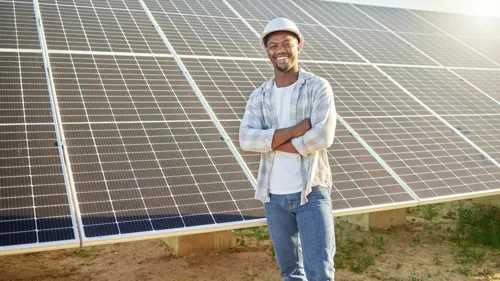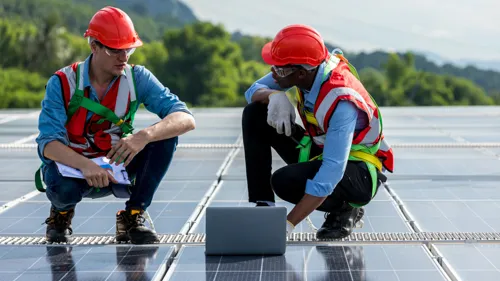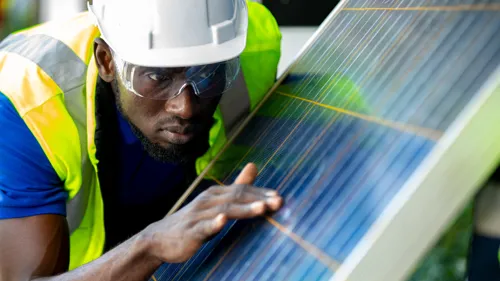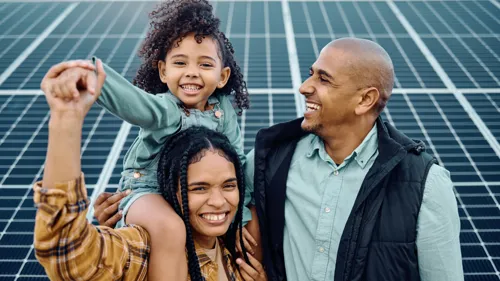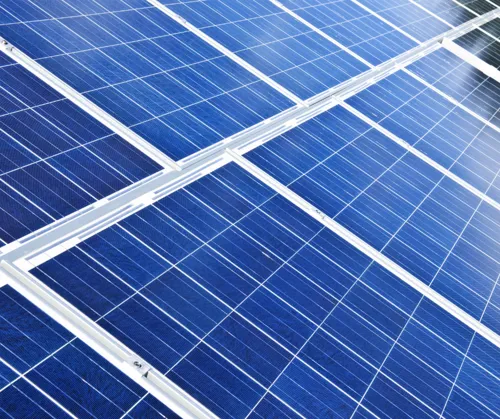If you're considering solar power for your home but are unsure which brand and model to choose, you're not alone.
To help you make an informed decision, we asked top solar professionals on Procompare which solar panels and inverters they recommend to their clients for an average-sized residential home.
Top solar panels for an average-sized residential home
Experts highly recommend you install Tier 1 solar panels. These are the highest quality panels produced by manufacturers with over five years of experience that are considered to be industry leaders in solar technology and production.
“Tier 1 designation indicates that the brand is trusted by insurance and loan provider companies,” explains Amit Kharb from The Sol Energy.
As a general rule of thumb, the larger the panel, the better the value for money in terms of the rand per watt spent. “Currently, 550W panels for residential homes are some of the top sellers,” adds Ben Joubert from IC Solar.
Expert insight: "For residential, we generally offer a 4, 6, or 8 panel system — this can increase in size but is obviously dependent on customer requirements in terms of power consumption and budget. These three sizes also offer a good starting point and allow for growth. This equates to a 2.2, 3.3, or 4.4kW system when using 550w panels and offers a daily average output of 10kWh (4 panels) to 20kWh (8 panels) depending on orientation. Note that the average suburban house uses around 35kWh per day." - Colin Mackay, CmaC Power Solutions
The larger the panel, the better the value for money in terms of the rand per watt spent.
Opting for solar panels larger than 550W presents challenges due to their increased weight and size, making them difficult to handle and transport to roofs of multi-story buildings. Additionally, using fewer but larger panels might decrease the power generated per square meter.
Smaller panels, ranging from 300W to 460W, are easier to install on roofs with intricate designs.
Other recommended solar panels: 2. Canadian Solar 545w Mono, 3. Jinko Solar 460w Mono, 4. JA Solar 460w Mono, 5. Trina Solar 545w Mono
Ideal power inverter for home use
An inverter converts direct current (DC) from solar panels or batteries into usable alternating current (AC). When choosing an inverter, focus on savings, reliability, efficiency, and quality of service.
But first, you have to know what kind of system you need. Hybrid off-grid inverters don't feed power back into the grid, so you miss out on potential feed-in tariff benefits. However, on-grid hybrid inverters can use both solar and grid power at the same time.
Expert insight: "For the average household, I recommend an 8kW inverter over a 5kW one. This is because a 5kW inverter is often pushed to its limits in a 3-bedroom home, especially during morning routines when appliances like kettles, toasters, and air fryers are commonly used."– Nicholas Smit, Camelphat Energy & Solar Solutions
5kW inverter is often pushed to its limits in a 3-bedroom home, so I recommend an 8kW one. – Nicholas Smit, Camelphat
Most of the solar professionals recommend installing a fully hybrid inverter since it enables the connection of solar panels, batteries, grid power, and generators.
“Select an inverter that offers online customization options, allowing you to adjust settings conveniently. This feature proves beneficial during load shedding, as you can preserve battery charge for up to 2 hours or extend it to 4 and 6 hours online,” advises Amit Kharb.
Other recommended inverters: 2. Deye 5kW 48V, 3. LuxPower SNA5000 5kw 48V 4. Victron Multiplus 3kW 24V, 5. MegaRevo 8kW 48V
The final choice always depends on the characteristics of the property, your needs and means.
Ensure the battery’s power and storage capacity is sufficient for the inverter.
Always consult an expert and get several quotes before buying solar systems.
Get free quotes for solar energy systemsThe whole solar system, including solar panels, battery, and inverter must be installed by a qualified electrician/technician.
